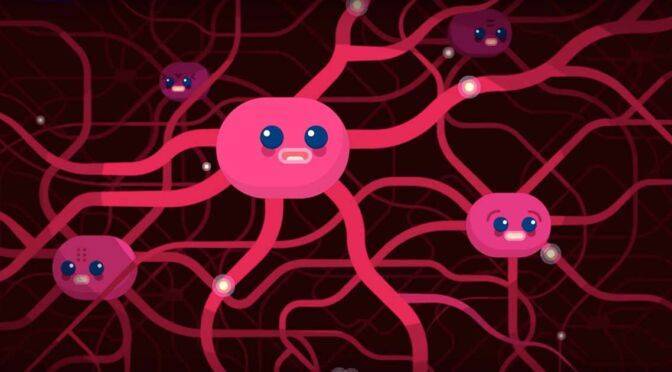You know what sucks?
Being stressed-the-fuck-out does.
And if your life sucks that way...
1) Sorry to hear that. For real, for real.
2) Join the club. It’s growing.
3) Actually, no. It’s the worst.
Fun fact:
“Unhealthy levels of stress” is the #1 disease in the world. 🏆
That revelation is probably not a huge shock. And, if you’re like me, there’s nostalgia for the days where that statement seemed at all provocative.
#notallstress
That said, It’s worth taking a moment to give a shout-out to stress in general.
Without stress, a technicolor life trends sepia.
Not getting enough stress is a tremendous emotional drag.
You may be wondering how in Sweet Baby Jesus’ name stress can be excellent. Well, if you’ve ever enjoyed one movie with an element of conflict, a sexy first date, or a ride with a minimum height requirement – you’ve got some clues to work with.
The best kind of stress, eustress, puts pep in your step. It’s energizing, inspiring, and motivating. Simply put, it’s all the thrill without the harmful additives of fear and/or sense of impending doom. It’s good for you.
In general, even most of what we think of “bad” stress isn’t *that* bad. Sure, it will release a minor flood of neurotoxins into the brain, but as long as we’re able to find ways to quickly return to relaxation, it’s no biggie in the long-run.
Chronic stress, on the other hand... is an asshole.
On life’s turntable, chronic stress is like a needle skipping on scratched vinyl – playing the worst bit of a very shitty song over-and-over-and-over.
As mentioned just sentences ago, “bad” stress isn’t really that bad if you’re able to swiftly bring yourself back into chill-mode.
But wIth chronic stress… that doesn’t happen.
And when chronic stress is your brain’s tenant, it can seem impossible to evict.
You may be at risk of chronic stress if...
Hopefully, that gave your brain a chance to chill-out and recover.
Because chronic stress is where you don’t chill-out and recover
– and the effects are far from fabulous.
The Malware of Habitual Fear and Anxiety

Let’s take a step back.
Many of us have this zany sense that we have ultimate control over our own brains.
It’s cute.
The truth is, most of what we feel as our “self” takes place in two bits of our frontal lobes that are each about the size of a thumb-nail.
When we do things that are new and exciting, our consciousness kicks into high-gear. But, consciousness is an energy-hog, and our brain considers most of what we experience as not sufficiently important to justify the expense.
So what does it do? It ignores a lot of stuff, and creates energy-conserving habits and instincts to deal with the rest.
The more you think and/or do anything, the more it becomes habitual/automated. The behavior patterns slip back into deeper parts of your brain. You just act without thinking about, or often being aware of, what you are doing.
This arrangement is not too shabby if the habits and instincts your brain is programed for are good for you. If getting exercise and eating healthy are auto-piloted decisions, you’re literally in great shape.
But…
What if your habits and instincts are "wired" for fear, depression, anxiety, and stress?
That’s quite a pickle.
And, if you’re in it, it’s not your fault.
We’re targets of a media complex incentivized to jack a IV of cortisol into our eye-sockets – exposing us to a scale of worldwide trauma unfathomable to most of our ancestors.
And, thanks to our ancient survival-instincts, our brains are just as wired to amplify negativity as Fox News. Our brain’s default-setting is to pay 5x+ more attention to bad things than good.
The imagination network in your brain gets inspired by all the novel traumas the world is generating and decides to form a skunk-works of new, innovative, imaginary traumas. ✨
These self-generated traumas may not be “real”, but the older parts of your brain can’t tell the difference.
They respond to these negative thoughts from your imagination AS IF they were real.
The more this happens, the more fear and stress become habitual and automated.
And it get’s better. (worse)
Because we naturally mirror the activity of the brains in the people around us, anxiety is contagious. Our brains trigger a stress response when we see another person who is stressed – even watching the event on a screen from a cannon-shot or ten away.
The release of stress chemicals is kind of like pouring acid on your brain. It destroys your neurons and glial cells (a maintenance crew for the brain), our immunity gets weaker, and our problem-solving skills get gimped. Over 3000 peer-reviewed studies show that stress is the leading cause for work burnout, divorce, anxiety, depression, cardiovascular disease, neurological disorders, and death.
Very helpful.
Q: So... should we just hide in a box of love, light, and rainbows?
A: lol. no.
The earth is on fire, remember?
The trick is to learn how to chill-out *even though* the earth is on fire.
And if that sounds like too much to ask, I pretty much agree.
But what are our options?
If our problem-solving skills are continuously punched in the boob by stress, how the hell are we going to solve the massive existential issues? Let alone get out of bed?
You won’t find any judgement here for struggling to keep your head on straight and/or do even the tiniest nice/helpful thing. Especially now. But to whatever extent you can walk this line, I sincerely hope you do.
As the sap-covered mosquitos in Jurassic Park show, even the tiniest things can bring about massive change.
How to Summon Chill-mode
Hey!
Given everything…
wouldn’t it be cool if there was a way we could summon chill like one would a demon?
Good news.
There are a few brain research-backed methods for relaxation without any of the inconveniences of drawing pentagrams or unleashing unspeakable evil.
And in contrast to hours of ceremony prep time, these methods take only 60 seconds.
Mindful Yawning
It may seem far-fetched, but yawning is among the most beneficial things you can do for your brain.
Yawning can almost instantly bring you into a state of boosted intelligence and simultaneously help you feel more grounded.
It decreases stress, lowers blood pressure, increases your concentration and enhances your consciousness.
It lowers the hyper-activity in frontal lobe functioning and turns down useless “mental chatter.” The more focused attention you bring to your yawning, the bigger the results.
Super-slow Stretching
Slow stretching allows time for your brain to send a relaxation signal to relieve tension manifesting in the body.
Take a full 60 seconds just lifting your shoulders to your ears so that the brain can notice the subtle tension and send a relaxation signal to the muscles.
Try repeating this with other parts of your body.
If you stretch the way most normally do, you won’t even notice how tense your muscles are. With yawning and super slow stretching you can enter a state of very deep relaxation in a minute or less.
Sensory Awareness Through Touch
Self-touch (not masturbation… necessarily at least)
is a proven technique to heighten your sensory awareness and enhance your brain functioning.
Gently stroking your arms or face can go a really long way.
In a multi-university study, sensory awareness techniques were shown to increase one’s sense of groundedness and self-control.
It helps you stay connected to yourself and retain a sense of yourself. It reduces the intensity of both physical and psychological pain. It brings you into the present moment where you do your best thinking and problem solving – it even boosts your immune system.
Imagine what might happen if you reprogrammed yourself to instinctually use these techniques and bash the daily-life’s anxieties like Thor playing whack-a-mole?
We just might just pull this off.
And either way, you’ll be able to live the life you have in a way that’s truer to your drop-dead-gorgeous soul.

Dive Deeper
Focused attention, open monitoring and loving kindness meditation: effects on attention, conflict monitoring, and creativity – A review
Dominique P. Lippelt, Bernhard Hommel, Lorenza S. Colzato
Front Psychol. 2014; 5: 1083. Published online 2014 Sep 23.
Meditate to create: the impact of focused-attention and open-monitoring training on convergent and divergent thinking.
Colzato LS, Ozturk A, Hommel B.
Front Psychol. 2012 Apr 18;3:116.
2-3X Your
Learning Speed

Exploring the Nature of What We Are
This thought-provoking video essay by Kurzgesagt – In a Nutshell insightfully deconstructs the nature of what we are. https://www.youtube.com/watch?v=JQVmkDUkZT4 “Are you your body?

Yu Yi: The Desire to Feel Intensely Again
yù yī – 玉衣 n. the desire to see with fresh eyes, and feel things just as intensely as you

How to Decide When You Should Talk Fast or Slow
Some people talk like they’re auctioneers on speed, while others speak like that one sloth in Zootopia. But, most of

Mental Contrasting Makes You More Successful According to 18 New Studies
18 new studies show that you can increase the chances you’ll reach your goals through a thought-technology called ‘mental contrasting’.


thank you very much
This article offers a fascinating perspective on the subject. The depth of research and clarity in presentation make it a valuable read for anyone interested in this topic. It’s refreshing to see such well-articulated insights that not only inform but also provoke thoughtful discussion. I particularly appreciated the way the author connected various aspects to provide a comprehensive understanding. It’s clear that a lot of effort went into compiling this piece, and it certainly pays off. Looking forward to reading more from this author and hearing other readers’ thoughts. Keep up the excellent work!
Fantastic article! I appreciate how clearly you explained the topic. Your insights are both informative and thought-provoking. I’m curious about your thoughts on the future implications of this. How do you see this evolving over time? Looking forward to more discussions and perspectives from others. Thanks for sharing!